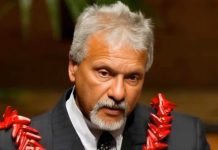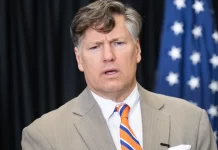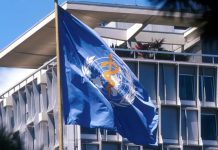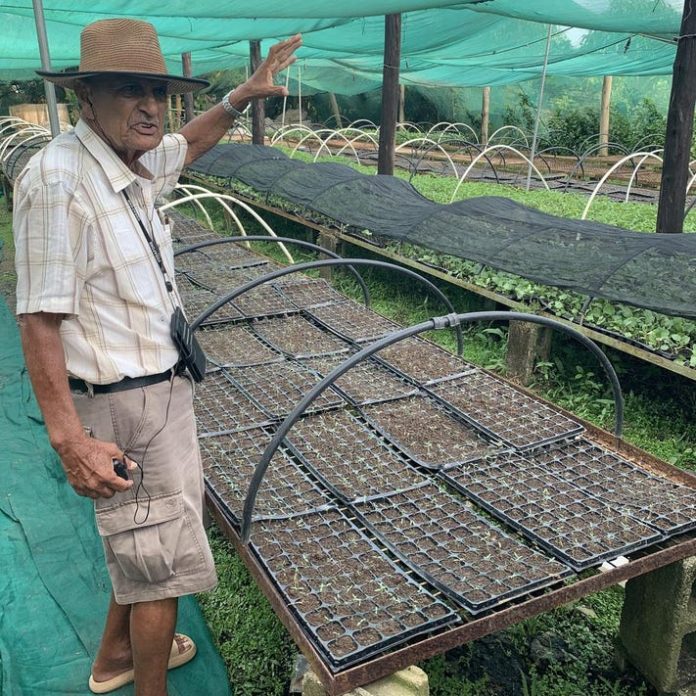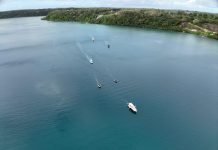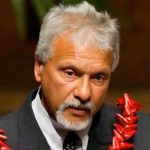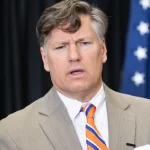By Michael Sheldrick
As Finance Ministers and Government Leaders gathered for the World Bank’s spring meetings last week in DC, the atmosphere was thick with buzzwords like “resilience,” MDB reform,” “SDRs,” “liquidity,” and the all too often repeated catchphrase, “turning billions into trillions”. While these terms may sound impressive, it’s easy to lose sight of the real impact they have on people and communities. It’s time to bring common sense back into the equation, and remember that the solutions the world needs are often much simpler than the buzzwords suggest.
Far from the lofty halls of the World Bank, thousands of miles away on the picturesque island of Fiji, 85-year-old farmer Sant Kumar is hard at work preparing for the next inevitable hurricane or cyclone. For him and many others like him, the threat of disaster is a constant reality that requires swift action, forward thinking, and practical solutions.
“They say climate change is happening. I think what is needed is a change of the mindset to be able to develop a system to be able to produce food on the table,” says Kumar. He has a healthy dose of skepticism for buzzwords like “early warning weather systems.”
“Don’t overthink it,” Kumar implores, as he explains his own way of growing food, no matter what the weather brings. As head of Bula Agro Enterprise, Kumar cultivates breadfruit seedlings, one of Fiji’s top commodities, in portable buckets. His buckets can be quickly relocated to a shelter, such as a metal shipping container, to protect the seedlings from cyclones that typically last five or six hours. Meanwhile, the tent-like seedling nurseries can be collapsed and propped back up – like ships in a bottle – to minimize wind damage. Simple.
The ability to ensure uninterrupted food production has far-reaching consequences. Kumar notes that Fiji’s debt currently stands at around FJDS$10 billion (equivalent to just under USD$5 billion). He pointed out that this debt will need to be paid off by Fiji’s mere 800,000 people, including their future generations. Therefore, cultivating food locally, rather than relying on imports, can provide a crucial source of income for the people of Fiji. To attain this goal, Fiji must not only sustain its current food production methods, but also expand to cater to local food demands and increase international exports.
To that end, with support from the Pacific Island Farmers Organisation (PIFO) and financial backing from the International Fund for Agricultural Development (IFAD), Kumar has been able to train thousands of women farmers and young students around the world, promoting “common sense” climate-resilient solutions that can be implemented anywhere. Despite the immense challenges faced by smallholder farmers, even small amounts of financing can make a major difference when coupled with their expertise.
Kumar’s emphasis on “common sense” solutions holds valuable lessons for the world’s finance leaders, who need not come up with these solutions themselves. Prime Minister Mia Mottley of Barbados, for example, has already presented a series of pragmatic and sensible suggestions that can equip low-income and climate-vulnerable nations with the resources they need to withstand natural disasters.
Mottley’s Bridgetown Initiative proposes a series of reforms that can expand lending from multi-development banks, including the World Bank, by over US$1 trillion dollars. If offered to eligible nations on equitable and affordable terms, such funding could bring about transformative change in the long run.
During the World Bank’s Spring Meetings, Mottley highlighted the unfair discrepancy between the 30-year mortgages available to homeowners in wealthy nations, and the short-term loans (often 10-15 years) offered by the World Bank and other institutions to developing countries for essential work like constructing schools, hospitals, and disaster-resistant infrastructure. She appealed for longer-term loans to be made available to developing countries, so that they could make necessary investments in the measures they need to prepare for and withstand natural disasters like cyclones, rather than just reacting in the aftermath.
Another common sense solution Mottley proposed included incorporating “natural disaster clauses” into these longer-term loans, to enable countries to pause debt repayments in the event of such calamities. This would free up funds during a crisis to speed up the recovery process without adding the burden of mounting debt, which can consume a significant portion of public budgets, leaving little for the recovery of crucial sectors like health and education.
In the Caribbean, it’s estimated that half of the accumulated debt can be traced back to responses to natural disasters.
While it may take time for private investors to embrace such clauses without imposing a premium, institutions like the World Bank can lead the way by normalising the protocol and creating a market for them. After all, for low-income countries, multilateral development banks already account for over 50 percent of their total lending. The UK’s Development Minister, Andrew Mitchell, has already expressed support for this approach. With the “Summit for a New Global Financing Pact” set to be hosted by French President Macron in just two months’ time, it would be a significant achievement to have the entire multilateral development bank community commit to incorporating clauses like this into their lending practices.
The benefits of these proposed reforms for affected communities cannot be ignored. In Malawi, for example, Cyclone Freddy, which lasted a record-breaking five weeks in February and March, caused over 1,000 deaths while the country was already grappling with its worst ever cholera outbreak. Providing affordable, long-term funding and implementing a disaster clause in a situation like this would not only help Malawi rebuild, but also ensure the government doesn’t have to choose between servicing its debt and responding to the needs of the population.
Ultimately, where you live should not determine if you live. Financial institutions need urgent reform in order to provide the vital funds governments need for disaster preparedness, the transition to clean energy, and crucial social programs. Fortunately, financial leaders don’t need to find every answer, because people like Kumar and Prime Minister Mottley have already provided the world with common sense solutions.
What we need from world leaders is the deployment of funding that will allow those with the solutions to get to work.
SOURCE: FORBES/PACNEWS


